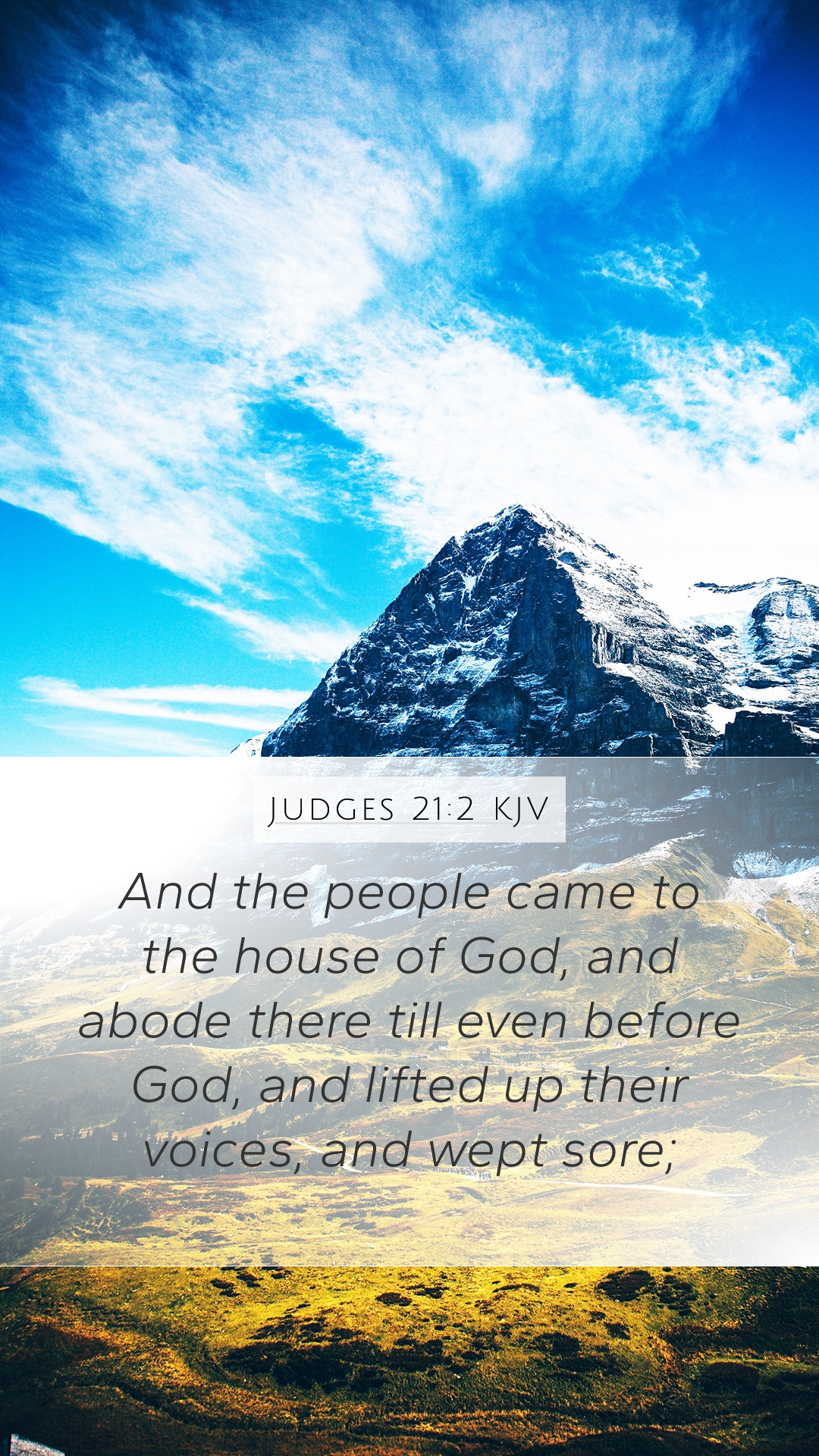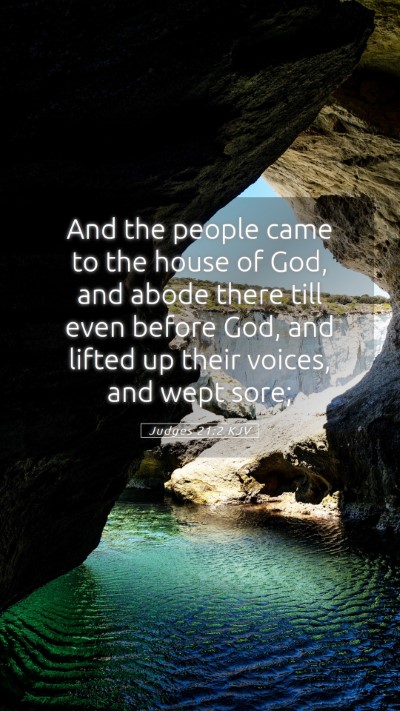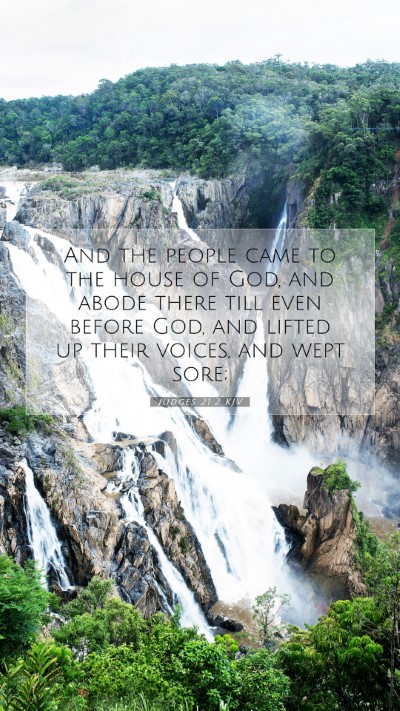Understanding Judges 21:2 - Biblical Commentary and Interpretation
The verse Judges 21:2 states:
"And the people came to the house of God, and abode there till evening before God, and lifted up their voices, and wept sore."
Contextual Overview
This verse occurs in the context of the aftermath of a tragic conflict among the tribes of Israel. The events in Judges 19-21 depict a disturbing period in Israel's history when moral decay was rampant, leading to civil strife and devastating consequences. The Israelites are mourning the loss of their brethren as they grapple with their collective guilt and the ramifications of their actions.
Bible Verse Meanings
In Judges 21:2, several significant themes can be uncovered through a combined analysis of public domain commentaries:
- Remorse and Mourning: The Israelites express deep sorrow for the violence that has erupted among them. Mourning is a consistent theme throughout scripture where communities come together to grieve.
- Seeking God's Guidance: Their gathering at the house of God indicates a desire for divine guidance. This reflects the importance of prayer and seeking God's will in times of distress.
- Collective Responsibility: The phrase "wept sore" demonstrates that the grief was not just personal but communal, emphasizing their shared responsibility and the weight of their actions on the community as a whole.
Detailed Commentary
Drawing from the insights of renowned commentators, we can further explore the depth of this verse:
1. Matthew Henry's Commentary
Matthew Henry emphasizes the somber reflection of the Israelites as they gathered in humility and reverence before God. He notes that their lamentation signifies the acknowledgment of sin and a plea for mercy, recognizing their failures as a nation. The act of crying and weeping illustrates the emotional weight of their situation, indicating a moment of repentance.
2. Albert Barnes' Notes on the Bible
Albert Barnes elaborates on the significance of their location—the house of God. He interprets this gathering as a vital part of their spiritual journey, where they reflect on their need for divine intervention and direction. He discusses the symbolic act of weeping as both a mourning for lost lives and a recognition of the consequences of their unrestrained actions.
3. Adam Clarke's Commentary
Adam Clarke provides insights into the ritualistic nature of their gathering, suggesting that they are not only grieving but also collectively seeking a solution to the crisis at hand. Clarke highlights the desperation in their actions, noting that their cries represent both a physical and spiritual outpouring, invoking the need for divine guidance.
Historical Context
The historical context of this verse is critical for understanding its implications. During the time of the judges, Israel lacked centralized leadership and was often influenced by the surrounding cultures, leading to cycles of sin, oppression, and deliverance. The events leading to this communal lament illustrate the chaos of a society that had strayed from God’s commands. In their sorrow, the Israelites were seeking to return to a state of favor with God.
Application of the Verse
Judges 21:2 provides profound insights relevant to contemporary believers:
- Collective Mourning: Just as the Israelites gathered to express their grief, modern-day believers are called to support one another in times of mourning and loss, acknowledging the importance of community in healing.
- Seeking God's Direction: This verse serves as a reminder of the importance of turning to God in times of crisis. Believers are encouraged to seek divine wisdom through prayer and reflection.
- Understanding Consequences: The communal aspect of their sorrow emphasizes that our actions can have far-reaching effects on the community. It encourages self-examination and accountability among believers.
Related Bible Cross References
- Judges 20:48: This verse discusses the aftermath of the battle and the sorrow over loss among the tribes of Israel.
- Psalm 34:18: This verse comforts those who are brokenhearted and in need of support, mirroring the themes of sorrow and divine proximity.
- 2 Chronicles 7:14: A reminder that humble prayer leads to healing and restoration, connecting the past to present applications.
Conclusion
In summary, Judges 21:2 captivates readers with its profound call to reflection, mourning, and seeking divine guidance. The combined insights from biblical scholars enrich our understanding, encouraging contemporary believers to consider the weight of collective actions and the importance of turning toward God in times of sorrow. Through this verse, we are reminded that our communities can find solace and direction through shared experiences and a return to faith.


